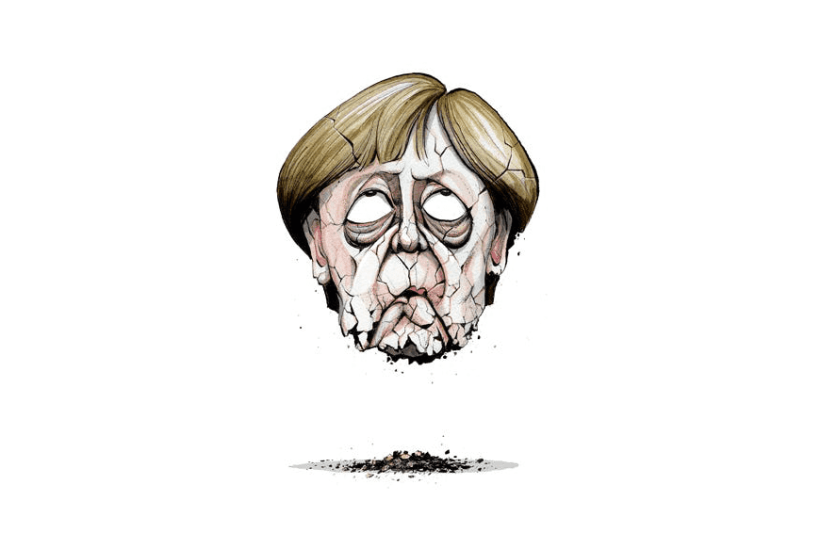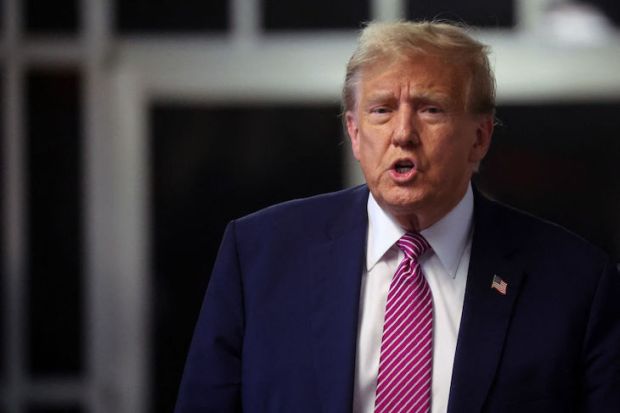Angela Merkel left the German chancellery at the end of last year with a bunch of flowers, a standing ovation in the Bundestag, a fist bump from her successor Olaf Scholz, and an approval rating of 68 per cent. Rarely for a national leader, she left office on her own terms, remaining Germany’s most popular politician until the week she stepped down, set to become the country’s elder stateswoman.
Less than three months later, Russia invaded Ukraine – immediately throwing her legacy into doubt. The 21st-century Germany she built is extraordinarily dependent on Russian energy thanks to years of dovish engagement with Vladimir Putin’s regime, placing German business interests firmly above concerns from eastern EU allies. It is proving a disastrous mistake – and one that is still constraining Berlin’s willingness to support Ukraine.
Merkel herself has said little since leaving office. She maintains she won’t be hitting the after dinner circuit for a while and will instead focus on writing her memoir. But in her one public intervention since leaving the chancellery, she defended her decision to keep Ukraine and Georgia out of Nato in 2008, a decision that went against the wishes of then US President George W. Bush and eastern Nato allies like Estonia. Merkel, along with French President Sarkozy, was reportedly concerned that the two countries weren’t yet stable enough and that quick accession could stoke tensions with Russia. Putin went on to invade Georgia only a few months later. Last month, Ukrainian President Volodymyr Zelensky blamed Merkel for emboldening Putin. ‘I invite Ms Merkel and Mr Sarkozy to visit Bucha and see what the policy of concessions to Russia has led to in the last 14 years,’ he said.
In some ways, Merkel is starting to look like a Tony Blair figure, lauded in power but whose legacy quickly collapses after leaving office. The two post-Cold War politicians represented a meet-in-the-middle brand of third way politics. Both leaders once seemed politically unstoppable. Now, 25 years after his 1997 landslide, the debate over Blair’s legacy remains charged. As Blair continues to give media interviews on everything from higher education policy to Ukraine, Labour party elites argue over whether his endorsement is useful for the current Labour leader Keir Starmer. That’s quite a remarkable turn of events: Blair is the only Labour leader to win a British general election since 1974.
As with Merkel, Blair’s biggest failure was in foreign policy. Many in Britain followed Blair’s lead at the time. Some 54 per cent of Brits surveyed in 2003 thought the decision to go to war in Iraq was right. In 2015, just 37 per cent agreed. Similarly, Merkel’s dovish Russia policy found wide support among the German public before Russia’s invasion of Ukraine made the consequences of Merkelist foreign policy so painfully clear.
Polls conducted since the Ukrainian invasion show that most Germans now support a harder line on Russia than at any point in modern history. Surveys regularly find majority support for harder sanctions, heavy weapon deliveries to Ukraine, and independence from Russian energy. Some 83 per cent now consider it important for Germany to become less dependent on China – a strong repudiation of Merkel’s long push to deepen business ties with Beijing. Before the invasion, the public largely opposed sending weapons to Ukraine and was divided on whether Russian military posturing should be met with harder sanctions. A public that once bought into Merkel’s pragmatism, placing business interests at the heart of German foreign policy, is now seeing just how short-sighted that strategy was.
Having come to power in 2005, Merkel sat across from Blair at many diplomatic summits in the early years of her chancellorship. She was the last major European figure to have shared the political arena with him. She may now be experiencing a similar fate to her fellow centrist leader: as history marches on, her fellow countrymen may become ever more disillusioned with her legacy.
Got something to add? Join the discussion and comment below.
Get 10 issues for just $10
Subscribe to The Spectator Australia today for the next 10 magazine issues, plus full online access, for just $10.




















Comments
Don't miss out
Join the conversation with other Spectator Australia readers. Subscribe to leave a comment.
SUBSCRIBEAlready a subscriber? Log in